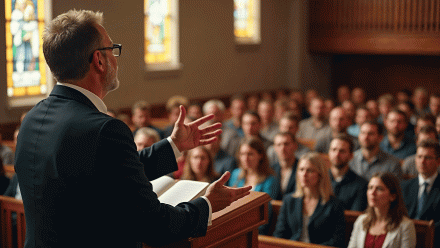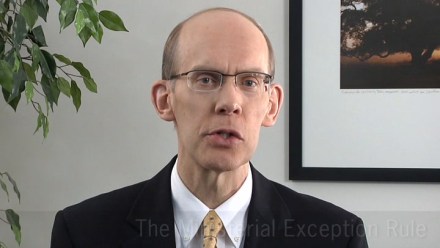When a deep recession arrived in 2008, churches operated in the most challenging financial climate since the Great Depression—an economic version of a classic biblical drought with money, credit, and confidence drying up.
Yet many church leaders still planned to expand facilities, despite the bleak outlook. A survey commissioned many years ago by Christianity Today and the Cornerstone Knowledge Network showed that 45 percent of the 485 leaders who responded planned to build within the next 18 months.
Optimism alone only goes so far. In challenging economic times, success also comes from a combination of diamond-sharp vision and a grasp of all the financial possibilities.
When the economy is poor, it forces churches to envision only those facilities that are aligned with top ministry priorities. A church cannot simply add square footage to a project and expect buy-in. Donors want to know exactly where their funds are going—and why.
Jim Sheppard, former chief executive officer of Generis, a church fundraising firm, says he would advise his clients to concentrate on the “wow” (we really need to do this), the “now” (we need to do it as quickly as possible), and the project’s alignment with every other ministry of the church.
First Steps
Contact a lender early and ask for a borrowing capacity analysis. There is no cost or obligation for this service, which can be turned around in a few days.
“It’s fairly common to have to scale the facility to the size of the church’s financial profile,” says Dan Mikes, a longtime banking executive serving churches. “I can’t tell you how many times I’ve walked through a building with a pastor and opened up a closet door to see a foot-tall pile of blueprints that they spent $10,000 on, only to find the building was out of their reach.”
The adjustment can also involve the “when.” Securing a large sum of money to finish a huge project all at once may not be the wisest move. One alternative is to complete the project one logical segment at a time.
“There are things that are vital and important and things that are nice. The vital should get done first. You can add in the other elements as you are financially able,” says Brian McAuliffe, who spent years as an executive pastor with a Chicago-area megachurch.
A Clear View
Lenders will want to see a clear picture of the financial health and history of the church to discover its realistic borrowing capacity.
“It’s a little unrealistic that someone will repay a loan that’s 10 times their annual income,” says Frank Sommerville, an attorney and CPA specializing in nonprofit law who serves as a senior editorial advisor for Church Law & Tax. “What can you afford? Have you been saving? What sort of reserves do you have? It’s important to demonstrate money going into savings and your ability to ultimately repay.”
A lender will carefully examine your church’s revenue and attendance trends. The guiding principle, according to several industry sources, is “cash is king, but cash flow is emperor.” Does a church have a “historic cash flow” going back two to three years to indicate that it would be able to handle the loan payments? These figures will carry far more weight than promises and pledges to repay.
A church will need to demonstrate its payback capability with a strong loan-to-value ratio, which is calculated by dividing the amount of the loan by the value of the property loaned against. Lenders usually like to see a 75 percent ratio, says Bill Couchenour, former CEO of a large design-and-build firm serving churches.
A church needs to be realistic about the market value of its current property, Couchenour says. Mikes urges churches to be wary of counting on the sale of existing property to propel the payment of the new loan.
“You might think you’ve got an executed sale agreement but never know about that buyer’s lender, the contingencies in buyer’s financing commitment or other things that could go wrong,” Mikes says.
Lenders consider these other factors:
- Credit rating.
- A description of the project, with approximate dollar amounts, including furniture, fixtures, and equipment.
- Attendance history, particularly growth patterns.
- Demographic studies.
- Two to three years of giving history and future projections.
- Titles and other property documentation.
- Balance sheets that are professional and complete.
- The church budget and any other audited financial statements.
- An explanation of how the church will perform capital fundraising and retire the debt.
Lenders don’t like surprises. A professionally prepared and complete documentation package will help move the process forward. Taking this approach could make a difference in borderline cases.
Lenders look at the human side of the entire package the church presents. They want to know that church leaders are passionate and skilled and that the ministry vision is compelling enough to attract people. But those factors won’t tip the balance if the financial side doesn’t add up.
Church size may be a factor to the lender. A small church does not need a lot of money, but also has limited cash flow. The flipside is true of a big church: it has plenty of cash flow history but needs big money for its project. As with private business, some lenders specialize in small loans while others go for the “Fortune 500” churches.
Study the Lenders
Any potential lender should come under scrutiny by the church as well. The first question is whether the lender has programs aimed at the church market.
Review the history of the lender to find out how long it has been in existence. Examine its financials to ensure that it is strong, and that it possesses the assets to survive for the term of the loan. See if the bank has any history lending to churches or not-for-profits. This helps you determine how well the lender understands your church, and the ways financial statements, cash flows, financial goals, and projections work for churches, leaders say.
Some banking institutions didn’t change their underwriting criteria during the 2008 recession. One reason, Mikes says, was that its church clients maintained their 0 percent delinquency rates. At the same time, loan approval rates declined.
“That’s because some churches [saw] some decline in revenue and cash flow. But [we took] as many applications as we want[ed] with all the capital we could hope to have, wanting to make as many loans as we [could] possibly make,” Mikes says.
However, in some cases during the 2008 recession, churches defaulted on their loans, which forced lenders to foreclose. Banks responded by combining a willingness to lend with a more conservative approach, such as asking for a higher down payment, and a more careful examination of financial statements.
On the upside, interest rates were at a historically low rate. That situation, plus the possibility of future inflation, presented an opportunity for churches to seek a new loan or refinance an existing one. When higher interest rates exist, churches likely will have to explore other options.
Financing Alternatives
Along with loans, raising money in difficult economic times requires a long look into other financing alternatives, such as capital campaigns, bonding, and pay-as-you-go projects.
Capital campaigns: Going to the congregation in a capital campaign appeals to the generosity of Christians, but it may conflict with the reality of a generally less prosperous donor pool.
A necessary opening move, Sheppard says, is an effective behind-the-scenes approach to high-quality donors. This campaign-before-the-campaign helps make your vision more airtight and gets the biggest players on board.
“Churches, for whatever reason, either don’t know how to do this or don’t want to do it. Maybe they’re scared about violating the admonition against favoritism in James. But [major donors] can give you input that nobody else can give you,” Sheppard says. “If they’re not going to buy into it, that’s a pretty good indication that the rest of your church won’t buy in, either.”
The end product of the campaign must be the right and only solution to the challenge a church may be facing.
“The vision for the campaign must be extremely compelling,” says McAuliffe. “The end-product of the campaign must be the right and only solution to the challenge a church may be facing. If there are less costly, short-term fixes, congregants will go to that solution and want to deal with the big fix at a more stable economic period.”
Bonding: Another approach involves going to the congregation and others and asking them to invest in bonds used to finance a project. Instead of one huge investor, the project has multiple stakeholders, each owning a small piece of the loan.
There are two primary bond types: (1) best effort underwriting, where the underwriter guarantees its best efforts but not that all bonds will be sold; and (2) guaranteed, where a firm underwriter purchases all the bonds and resells them to investors, guaranteeing a return to the church.
“Every church seeking to borrow more than $1 million should get a quote from a bond company to compare with commercial loan alternatives,” says Scott Rolfs, managing director of K-12 and Charter School Finance at Ziegler, a Milwaukee-based bonding firm. “Ultimately, the more choices that are available, the more likely the church will end up with something that best fits its ministry.”
Pay as you go: A church can be patient and take a pay-as-you-go approach, raising funds by a variety of methods short of borrowing. Here a church focuses on more than cash immediately available. Property, stock, vehicles, and other assets could be sold to raise funds. Family connections outside the church could be tapped. Short-term lines of credit could be strategically used and repaid by the end of the project.
“[This can be] very smart, especially if the church is debt averse,” McAuliffe says. “If you can break up the project that way and pay for it as you do each phase, that would be a great plan. The key is not signing a contract for more resources than you have on hand or will have on hand by the time you have to pay for that part of the long-term project.”
One downside of the pay-as-you-go approach is the possibility that a church may have to wait to fill a ministry gap best addressed by new facilities now. Another is that a congregation asked to undertake an extended capital campaign may experience “giving fatigue.” If giving stalls, then the church could end up approaching a lender and borrowing the amount needed to finish the project.
Start Early
Whatever scenario your church selects, start early, especially if the objective is to build for cash. If borrowing, contact a lender when your balance sheet is strong, and not while you are in the middle of a project and cash flow slows to a trickle. Develop a margin between income and expenses. Create a building fund.
“I would like to get churches into that mindset of planning ahead for those kinds of things,” Couchenour says. “When it comes to a point where you know you can continue to expand ministry but need facilities to do that, it can be wise to borrow. The general rule is to borrow the least amount possible to be able to get the facilities you need to continue to expand ministry.”
We’ve used a combination of AI and human review to make this content easier to read and understand.



















